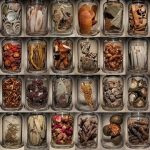List Of Drugs and Herbs That Suppress The Immune System

The immune system is a complex network of cells and proteins that defends the body against infection. The immune system keeps a record of every germ (microbe) it has ever defeated so it can recognize and destroy the microbe quickly if it enters the body again. Abnormalities of the immune system can lead to allergic diseases, immune-deficiencies and autoimmune disorders.
Immune suppression, also known as immunosuppression or immune compromise, means your immune system isn’t working properly. This includes any or all of the defenses that make up your immune system – particularly the white cells in our bloodstream, along with our spleen and lymph nodes.
Can drugs suppress the immune system?
Yes, immunosuppressant drugs are a class of drugs that suppress, or reduce, the strength of the body’s immune system. Some of these drugs are used to make the body less likely to reject a transplanted organ, such as a liver, heart, or kidney. These drugs are called antirejection drugs. Beyond these drugs, there are many regular prescription and over the counter medications including herbs and supplements that can suppress the immune system.
What does it mean for you?
If your immune system is suppressed, you may be more vulnerable to infection. You are more likely to need to see a doctor, more likely to need antibiotics and more likely to land up in hospital for treatment if you develop an infection, than someone who is not immunosuppressed. You can’t have live vaccines if you are immunosuppressed, and you may need to take special precautions when you travel. You are also more vulnerable to certain skin cancers if you are immunosuppressed.
List of Drugs That Suppress The Immune System
According to Healthline, there are several different types of immunosuppressant drugs. The drug or drugs you’ll be prescribed depend on whether you have an organ transplant, an autoimmune disorder, or another condition.
Many people who receive immunosuppressant drugs are prescribed medications from more than one of these categories.
Corticosteroids
• prednisone (Deltasone, Orasone)
• budesonide (Entocort EC)
• prednisolone (Millipred)
Janus kinase inhibitors
• tofacitinib (Xeljanz)
Calcineurin inhibitors
• cyclosporine (Neoral, Sandimmune, SangCya)
• tacrolimus (Astagraf XL, Envarsus XR, Prograf)
mTOR inhibitors
• sirolimus (Rapamune)
• everolimus (Afinitor, Zortress)
IMDH inhibitors
• azathioprine (Azasan, Imuran)
• leflunomide (Arava)
• mycophenolate (CellCept, Myfortic)
Biologics
• abatacept (Orencia)
• adalimumab (Humira)
• anakinra (Kineret)
• certolizumab (Cimzia)
• etanercept (Enbrel)
• golimumab (Simponi)
• infliximab (Remicade)
• ixekizumab (Taltz)
• natalizumab (Tysabri)
• rituximab (Rituxan)
• secukinumab (Cosentyx)
• tocilizumab (Actemra)
• ustekinumab (Stelara)
• vedolizumab (Entyvio)
Monoclonal antibodies
• basiliximab (Simulect)
• daclizumab (Zinbryta)
Herbs That Suppress The Immune System
A number of herbal products and supplements are in use for their immunosuppressive effects. This capacity of herbs may have useful applications in immune-mediated disorders including autoimmune diseases and organ transplant rejection. Herbs with immunosuppressive effects include:
Salvia miltiorrhiza: Salvia miltiorrhiza, also known as red sage, Chinese sage, tan shen, or danshen, is a perennial plant in the genus Salvia, highly valued for its roots in traditional Chinese medicine. This plant has been shown to reduce inflammatory cytokines and mediators, indicating their value in the treatment of acute graft rejections and autoimmunity.
Thunder god: Scientifically known asTripterygium wilfordii, or léi gōng téng is a vine also used in traditional Chinese medicine. It is used in traditional medicine for promoting blood circulation, killing parasites, regulating immunity. It has been shown to reduce inflammatory cytokines and mediators.
Feverfew: Scientifically known asTanacetum parthenium, is a flowering plant in the daisy family, Asteraceae. It is traditionally used for the treatment of fevers, migraine headaches, rheumatoid arthritis, stomach aches, toothaches, insect bites, infertility, and problems with menstruation and labor during childbirth. Studies indicate that this plant inhibits the release of pro-inflammatory mediators from macrophages and lymphocytes.
Turmeric: Scientifically known as Curcuma longa, it is used as a traditional medicine and remedy for various diseases including a coughs, diabetes, dermatological conditions, respiratory problems, cardiovascular and hepatobiliary diseases, arthritis, irritable bowel disease (IBS), peptic ulcers, psoriasis, and atherosclerosis. Research has shown that turmeric down regulates the expression of cytokines and chemokines as well as the transcription factor NF-kappaB making it a potential immunosuppressant.
You may find useful information on: Does Immunocal Really Work: What are the Dangers?





